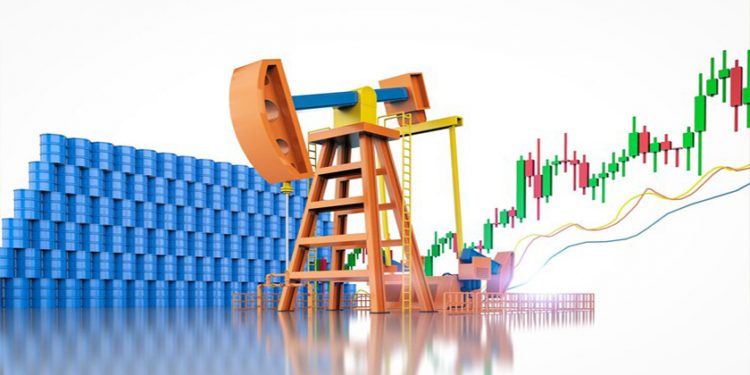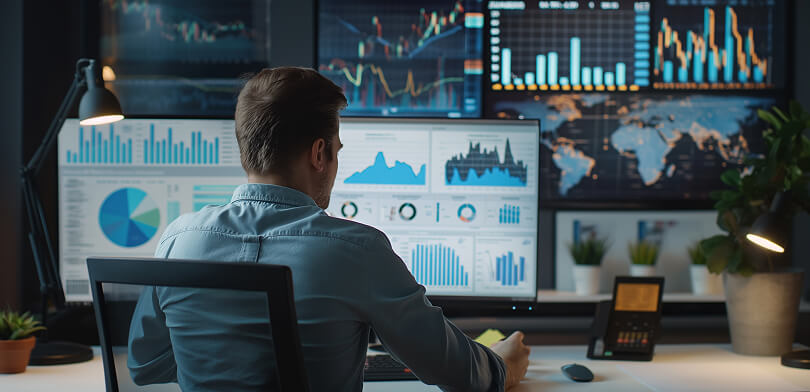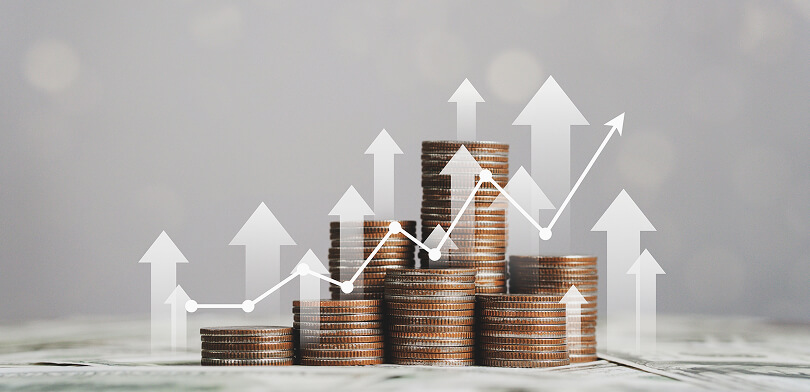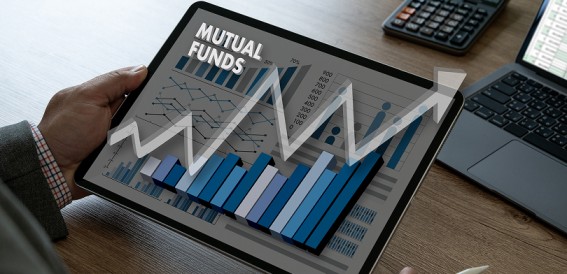- Last Updated: Jun 06,2024 |
- Religare Broking
Commodity trading is buying & selling commodities to earn profit. The investors speculate the future price movements and deal in futures & contracts. The history of commodity trading dates back to the 19th century when the Chicago Board of Trade (CBOT) was established in the United States. Since then, commodity trading has become a global phenomenon, and it is estimated that more than $20 trillion worth of commodities are traded each year.
In this blog post, we will discuss the basics of commodity trading, trading strategies, advantages & risks involved and more.
- Types of Commodity Trading
- How Commodity Trading Works
- Major Commodity Trading Exchanges in India
- Factors that Affecting Commodity Prices
- Advantages of Commodity Trading
- Role of Commodity Exchanges in Commodity Trading
- Commodity Trading Strategies
- Commodity Trading Tools
- Regulations of Commodity Trading
- Top Commodity Trading Firms
- Commodity Trading for Beginners
- Commodity Trading and Sustainability
- Future of Commodity Trading
- Final Words
Topics Covered
Types of Commodity Trading
Futures Commodity Trading: The buying or selling a commodity at a predetermined price and date in the future is futures trading. Futures contracts are standardized, traded on exchanges, and require margin deposits to secure the position.
Options Commodity Trading:
Options trading gives the buyer the right, but not the obligation, to buy or sell a commodity at a specific price and date. Options trading can be used for hedging or speculation.Spot Trading/ physical commodity trading:
Spot trading refers to buying or selling a commodity for immediate delivery or settlement. Spot trading is often used in physical commodities, such as metals or agricultural products.Over-the-Counter Trading:
This involves trading commodities directly between two parties without using a regulated exchange. Over-the-counter trading can have very high counterparty risks.Exchange-Traded Funds (ETFs):
ETFs track the performance of a specific commodity or a group of commodities. ETFs can be traded on exchanges like stocks and provide investors with exposure to commodity markets.Recommended Read: Buy only what you understand
How Commodity Trading Works
The commodity trading works just like stock markets trading. Traders buy and sell commodities - metals, agricultural products, and energy products, through futures and options contracts.
The commodity brokers act as intermediaries between the traders and the exchanges, and charge a commission for their services. The commodity exchanges are Multi Commodity Exchange (MCX), National Commodity and Derivatives Exchange (NCDEX), National Multi- Commodity Exchange (NMCE), and Indian Commodity Exchange (ICEX).
The prices of commodities are influenced by factors such as supply and demand, geopolitical events, weather conditions, and government policies. To succeed in commodity trading, traders need to have a good understanding of the supply and demand of commodities. They should conduct market analysis and do research to identify potential profit making opportunities.
Recommended Read: Meaning of Demat Account
Major Commodity Trading Exchanges in India
Commodities can be classified into three categories: agricultural, energy, and metal commodities. Agricultural commodities include wheat, corn, soybeans, and sugar, among others. Energy commodities include crude oil, natural gas, and gasoline, while metal commodities include gold, silver, copper, and platinum.
The most traded commodities across the globe are gold, corn, crude oil, brent, silver, wheat and coffee. Metal commodities act as an important hedge to falling equities. Every major crash in equity markets is often accompanied by a sudden spike in gold prices.
Factors that Affecting Commodity Prices
There are several external factors that impact the prices of commodities:
- Economic factors:
such as inflation, interest rates, and exchange rates play a crucial role in determining commodity prices. With rising inflation, cost of production escalates. Likewise higher interest rates increase the cost of borrowing money, while changes in exchange rates affect the competitiveness of commodities. All these factors together cause rise in commodity prices.
- Political factors:
such as change in government policies and wars have a significant impact on commodity prices. For example, political instability in oil-producing countries challenges supply of crude oil, which leads to crude prices to rise. Trade restrictions and embargoes also impact the demand for certain commodities.
- Environmental factors: such as natural calamities, climate change, and alike also impact prices of commodities. For example, droughts or floods can affect the supply of agricultural commodities, while hurricanes or oil spills can affect the supply of energy commodities.
Advantages of Commodity Trading
Commodity trading offers several advantages to the investors:
- Portfolio diversification:
Commodities tend to have low or negative correlation with other asset classes, such as stocks and bonds, and they provide a hedge against market volatility. Thus, adding commodity help diversify a portfolio and reduce overall risk.
- Hedge against inflation: The price of commodities rise with inflation. This is because the cost of production of commodities increases with inflation.
- Potential for high returns: Commodity trading offer short term opportunities to make profits as commodity prices are volatile and dependent on external factors.
Role of Commodity Exchanges in Commodity Trading
Commodity exchanges are also called as Futures Market, or Futures Exchange. Here, buyers and sellers deal in future contracts of commodities. A futures contract is agreed quantity and quality of the commodity to be delivered at a future date. The leading commodity exchanges are Chicago Mercantile Exchange (CME), the New York Mercantile Exchange (NYMEX), and the Intercontinental Exchange (ICE). Our primary commodity exchanges are MCX, Multi Commodity Exchange; NCDEX, National Commodity and Derivatives Exchange; and ICEX, Indian Commodity Exchange (ICEX).
Commodity Trading Strategies
Compare fees across brokers:
Compare the brokerage fees charged by different brokers for different services.Traders use a combination of technical, fundamental and quantitative analysis to make profitable decisions. Their commodity strategies always also depend on their risk tolerance, trading style, and market conditions.
- Technical analysis, involves using historical charts & technical indicators to identify trends and patterns in commodity prices.
- Fundamental analysis, involves analyzing the supply and demand factors that affect commodity prices. Here investors analyze production levels, inventories, and weather patterns to identify potential trades.
- Quantitative analysis, involves using mathematical and statistical models to analyze commodity prices. Here, a trader determines factors like market volatility, correlation & risk management
Commodity Trading Tools
Commodity trading is conducted online and anyone can begin their journey as there is no elaborative list of commodity trading tools required. You simply login to an online trading platform and make buy & sell decisions. Here you get access to trading software where you can analyze market data for making investment decisions. You can try commodity trading on simulators as a beginner & build your confidence in the markets.
Recommended Read: How to choose stocks for intraday trading
Regulations of Commodity Trading
SEBI aims to protect investors’ interest and strengthen the regulatory framework for trading and bring it in line with international best practices. It issues various circulars, guidelines, and notifications to provide further clarity and guidance on issues related to commodity trading, such as position limits, margin requirements, trading hours, and surveillance mechanisms. Overall, these regulations aim to promote transparency, fairness, and efficiency in the Indian commodity derivatives market.
One of the major commodity trading regulations include Securities Contracts (Regulation) (Amendment) Act, 2013. It expanded the definition of securities to include commodity derivatives. Another one is Commodity Derivatives Market Regulation (CDMR) Act, 2019, which provides a legal framework for the regulation of commodity derivatives trading.
Top Commodity Trading Firms
Some of the top commodity trading firms in India are:
Reliance Industries Limited
Adani Group
Tata Group
Vedanta Limited
Glencore India Private Limited
Louis Dreyfus Company India Pvt Ltd
MMTC Ltd
When comparing these firms for potential opportunities, consider their market share, revenue, geographical reach, and the types of commodities they trade in. Additionally, you must also consider their approach to sustainability and corporate responsibility.
Commodity Trading for Beginners
As a beginner it is important to research and understand the market for the specific commodity you are interested in trading. Do track prices, supply and demand factors, weather patterns, political developments, and other factors that can affect the commodity's value. Be well aware of your risk tolerance, investor profile and goals. Accordingly choose the trading strategy. Commodity trading can be volatile, so it's important to follow some thumb rules so that you can make wise decisions:
- Manage your risk by diversifying your portfolio
- Set stop-loss orders to limit losses
- Avoid over-leveraging.
- Stay up-to-date on the latest market news and trends by following industry publications.
- Attend seminars and network with other traders.
Recommended Read : Trading tick india
Commodity Trading and Sustainability
The growing concerns about developing a sustainable supply chain — in line with ESG i.e. environmental, social, and governance values — has become an important topic for commodity traders. All stakeholders such as banks, funders, and insurers are seeking insights into ESG strategy and implementation of their clients.
Steps are being taken to promote sustainable commodity trading practices by supporting sustainable production, promoting transparency and traceability in supply chains, and encouraging responsible practices among the partners.
Future of Commodity Trading
The future of commodity trading is poised for growth. We have seen increasing retail participation in the recent times. Besides, government initiatives are also boosting the sector. Emerging trends such as global trade and the impact of technology, ease of electronic trading platforms, and digitization in Tier 2 & 3 cities, will continue to drive the growth.
Final Words
Commodity trading plays a significant role in global economics. From agricultural products to precious metals and energy, commodities are essential components in our daily lives. By understanding the basics of commodity trading and keeping up with the latest industry trends
Explore the Exciting World of Commodity Markets with a open free demat account. Get Started Now













